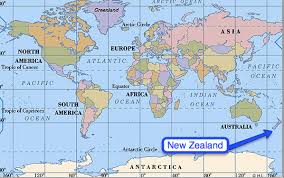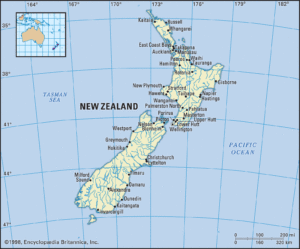Go Lean Commentary
Every society, the Caribbean included, have both men and women that play a part in the fabric of society – in good, bad and ugly ways:
- Male versus female
- His versus Hers
- Masculine versus Feminine
- Masculinity versus Femininity
 There is no problem with femininity, in this context, but “Woe Neely” there are issues with masculinity. The focus of this commentary is Toxic Masculinity.
There is no problem with femininity, in this context, but “Woe Neely” there are issues with masculinity. The focus of this commentary is Toxic Masculinity.
The movement behind the 2013 book Go Lean…Caribbean just completed – during the month of September 2020 – a 6-part Teaching Series on the actuality of Toxic Environments. We’ve got it bad! See how this was related in the opening entry:
A Toxic Environment in a community is likened to a weak foundation for a house; think a workplace filled with harassment and discrimination or a neighborhood with blatant racism where minorities endure burning crosses … .
Consider here, the full catalog of the September series, plus this supplement:
- Toxic Environment: Ready for Football – Washington “Redskins”
- Toxic Environment: Homophobia – The problem is the Hate, not the Fear – Encore
- Toxic Environment: Opposite of Diversity & Inclusion
- Toxic Environment: Lessons from Yugoslavia
- Toxic Environment: Ease of Doing Business
- Toxic Environment: Make the Caribbean Great (Anew) – Encore
————– - Toxic Environment ==> Toxic Masculinity
There is another dysfunctional angle of Toxicity that we did not consider last month, that of Toxic Masculinity. It is bad! Such that there are media advice to avoid even dating our Caribbean men – see Appendix B VIDEO below. See the full definition in Appendix A below, plus this summary excerpt here:
Toxic masculine traits are characteristic of the unspoken code of behavior among men in prisons, where they exist in part as a response to the harsh conditions of prison life.
Other traditionally masculine traits such as devotion to work, pride in excelling at sports, and providing for one’s family, are not considered to be “toxic”.
“Men in prison” – if only the toxicity ended there. Rather we find that in certain societies, the “man code” has penetrated all aspects of society, not just prisons; think “locker room talk”, “Blue Codes” for conduct among law enforcement officials or bonding among soldiers in foxholes or trench-warfare ; there is even a “code of silence” among gang members or organized crime figures.
Toxic Masculinity is just one more way that Toxic Environments have affected the “community quest” to live, work and play in the Caribbean. Needless to say, community stewards cannot allow Toxic Masculinity to dominate society; think bullying, domestic violence, sexual harassment in the workplace. It is unfortunate but true, “bad actors” will always seek to exploit any weakness for their own selfish gain. So we must be prepared to curb the toxicity and promote a positive community ethos instead. Community ethos? That is defined in the Go Lean book (Page 20) as:
- the fundamental character or spirit of a culture; the underlying sentiment that informs the beliefs, customs, or practices of a group or society; dominant assumptions of a people or period: In the Greek ethos the individual was highly valued.
- the character or disposition of a community, group, person, etc.
This focus, fostering change in the community ethos, has been a mission for this Go Lean movement from the beginning of this movement. This theme has been elaborated in many previous blog-commentaries; consider this sample here:
| https://goleancaribbean.com/blog/?p=18337 | Unequal Justice: Bullying Magnified to Disrupt Commerce |
| https://goleancaribbean.com/blog/?p=17652 | A Lesson in History – 25 years after the “OJ Murders” |
| https://goleancaribbean.com/blog/?p=16408 | Bad Ethos on Home Violence |
| https://goleancaribbean.com/blog/?p=14413 | Helping Black Caribbean Men & Boys – Hurt People Hurt People |
| https://goleancaribbean.com/blog/?p=5238 | #ManifestJustice – Lessons from the Prison Eco-System |
| https://goleancaribbean.com/blog/?p=2709 | Bahamas Study: 58% Of Boys Agree to Female ‘Discipline’ |
| https://goleancaribbean.com/blog/?p=2201 | Students developing nail polish to detect date rape drugs |
It is simple, if we want to grow our society, we must work hard to make it a better place to live, work and place for everyone, not just some people. We must accept that there are negatives in our society, Toxicity Masculinity is one of the things that we must Be On-guard against.
The seriousness of this subject was related in a previous Go Lean commentary from April 29, 2014 relating the societal defect of Domestic Violence:
Abused wives find help by going to ‘Dona Carmen’
An underlying mission of the CU [the Go Lean roadmap] is to dissuade further human flight and incentivize repatriation of the far-flung Diaspora. Many who had fled previously obtained refugee status due to the abuse and persecution from domestic perpetrators. These issues must be addressed and targeted for solutions and reconciliations.In fact, the foregoing embedded article refers to the new enforcements introduced in Brazil in a 2006 law. That’s was just 8 years ago. (A similar Domestic Violence law was enacted in the Bahamas in 2008). A survey of other Latin American countries unveils even more new laws recently enacted in the Caribbean, Central and South America. Change has finally come.
Change has come to the Caribbean, but as the roadmap depicts, the problem of domestic violence (a human rights abuse) had persisted long before, and is thusly rooted in a [bad] community ethos. An ethos that must be uprooted and replaced with a new, progressive spirit, even within the public service entities, whose job it is to “serve & protect”. This is the new lean Caribbean!
The Go Lean book, serving as a roadmap for the introduction of the Caribbean Union Trade Federation (CU), asserts that Caribbean stakeholders must do the heavy-lifting to mitigate and remediate societal defects. There must be a technocratic security apparatus that works hand-in-hand with any economic optimization efforts and governing empowerments. We must have a good societal foundation; respect and protection of people and their rights for life, liberty and the pursuit of happiness. This was the purpose of last month’s Teaching Series, to focus on that foundation. There is a glaring need for reform, as we have a long track record of bad behavior like hate, bigotry, xenophobia and bullying in our Caribbean communities.
Have you ever notice the habit of men wearing their pants in a sagging manner, where their underwear is openly exposed? This is Toxic Masculinity run amok. This habit originated in prisons – see the relevant VIDEO in Appendix C below – while this has become common in the Black American community, it is not limited there, and it is more than just an American drama now.
Florida Town Drops Ordinance Against Sagging Pants, Saying It Targets Black Men
A controversial 13-year-old ban on sagging pants in a Florida town has been repealed because it disproportionately targeted African American men, city officials say. The Opa-locka, Fla., ordinance, originally passed in 2007, was voted down 4-1 by the City Commission, according to the Miami Herald. The legislation had stated men could not wear pants that exposed their underwear in city parks and buildings, with a citation as punishment for violation. A similar law was passed for women in 2013, but now both are expected to be overturned after a subsequent commission meeting.
The Caribbean is not the first nor the last Toxic Environment; there have been many in the past and even now in the present.
It is Toxic to allow prison culture to dominate our normal society. It is also Toxic to allow the “Strong to Abuse the Weak”; this is classic bullying.
How can we remediate and mitigate Toxic Masculinity? For one thing, we must start early. Then we must not settle for the bad orthodoxy of “boys will be boys”. It has been proven again and again that bad instincts can be corrected and weeded out of society. Yes, the solution is: reform and transform.
We must strive to do better in our homeland, otherwise our people will continue to flee in search of refuge. Toxic Masculinity exist in our society, we must work to dislodge it, message against it, coach it out of our young people and foster positive values and ethos in its place.
So we urge all stakeholders in the Caribbean – citizens and institutions – to lean-in to this Go Lean roadmap for the elevation of the Caribbean’s societal engines: economy, security and governance. We can do better and be better. 🙂
About the Book
The book Go Lean…Caribbean serves as a roadmap for the introduction and implementation of the technocratic Caribbean Union Trade Federation (CU), for the elevation of Caribbean society – for all member-states. This CU/Go Lean roadmap has these 3 prime directives:
- Optimization of the economic engines to grow the regional economy to $800 Billion & create 2.2 million new jobs.
- Establishment of a security apparatus to ensure public safety and protect the resultant economic engines.
- Improve Caribbean governance to support these engines, including a separation-of-powers between the member-states and CU federal agencies.
The Go Lean book provides 370-pages of turn-by-turn instructions on “how” to adopt new community ethos, plus the strategies, tactics, implementations and advocacies to execute so as to reboot, reform and transform the societal engines of Caribbean society.
Download the free e-Book of Go Lean … Caribbean – now!
Who We Are
The movement behind the Go Lean book – a non-partisan, apolitical, religiously-neutral Community Development Foundation chartered for the purpose of empowering and re-booting economic engines – stresses that reforming and transforming the Caribbean societal engines must be a regional pursuit. This was an early motivation for the roadmap, as pronounced in the opening Declaration of Interdependence (Pages 11 – 13):
x. Whereas we are surrounded and allied to nations of larger proportions in land mass, populations, and treasuries, elements in their societies may have ill-intent in their pursuits, at the expense of the safety and security of our citizens. We must therefore appoint “new guards” to ensure our public safety and threats against our society, both domestic and foreign. The Federation must employ the latest advances and best practices of criminology and penology to assuage continuous threats against public safety. ….
xi. Whereas all men are entitled to the benefits of good governance in a free society, “new guards” must be enacted to dissuade the emergence of incompetence, corruption, nepotism and cronyism at the peril of the people’s best interest. The Federation must guarantee the executions of a social contract between government and the governed.
xvi. Whereas security of our homeland is inextricably linked to prosperity of the homeland, the economic and security interest of the region needs to be aligned under the same governance. Since economic crimes … can imperil the functioning of the wheels of commerce for all the citizenry, the accedence of this Federation must equip the security apparatus with the tools and techniques for predictive and proactive interdictions.
xxiv. Whereas a free market economy can be induced and spurred for continuous progress, the Federation must install the controls to better manage aspects of the economy: jobs, inflation, savings rate, investments and other economic principles. Thereby attracting direct foreign investment because of the stability and vibrancy of our economy.
Sign the petition to lean-in for this roadmap for the Caribbean Union Trade Federation.
————-
Appendix A – Reference: Toxic Masculinity
The concept of toxic masculinity is used in academic and media discussions of masculinity to refer to certain cultural norms that are associated with harm to society and to men themselves. Traditional stereotypes of men as socially dominant, along with related traits such as misogyny and homophobia, can be considered “toxic” due in part to their promotion of violence, including sexual assault and domestic violence. The socialization of boys in patriarchal societies often normalizes violence, such as in the saying “boys will be boys” with regard to bullying and aggression.
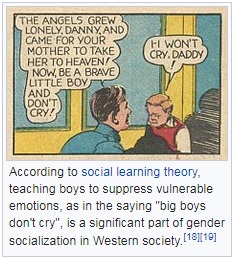 Self-reliance and emotional repression are correlated with increased psychological problems in men such as depression, increased stress, and substance abuse. Toxic masculine traits are characteristic of the unspoken code of behavior among men in prisons, where they exist in part as a response to the harsh conditions of prison life.
Self-reliance and emotional repression are correlated with increased psychological problems in men such as depression, increased stress, and substance abuse. Toxic masculine traits are characteristic of the unspoken code of behavior among men in prisons, where they exist in part as a response to the harsh conditions of prison life.
Other traditionally masculine traits such as devotion to work, pride in excelling at sports, and providing for one’s family, are not considered to be “toxic”. The concept was originally used by authors associated with the mythopoetic men’s movement such as Shepherd Bliss to contrast stereotypical notions of masculinity with a “real” or “deep” masculinity that they say men have lost touch with in modern society. Critics of the term argue that its meaning incorrectly implies gender-related issues are caused by inherent male traits.[1]
Etymology and usage
The term toxic masculinity originated in the mythopoetic men’s movement of the 1980s and 1990s.[2] It later found wide use in both academic and popular writing.[3] Popular and media discussions in the 2010s have used the term to refer to traditional and stereotypical norms of masculinity and manhood. According to the sociologist Michael Flood, these include “expectations that boys and men must be active, aggressive, tough, daring, and dominant”.[4]
Mythopoetic movement
Some authors associated with the mythopoetic men’s movement have referred to the social pressures placed upon men to be violent, competitive, independent, and unfeeling as a “toxic” form of masculinity, in contrast to a “real” or “deep” masculinity that they say men have lost touch with in modern society.[5][6] The academic Shepherd Bliss proposed a return to agrarianism as an alternative to the “potentially toxic masculinity” of the warrior ethic.[7] Sociologist Michael Kimmel writes that Bliss’s notion of toxic masculinity can be seen as part of the mythopoetic movement’s response to male feelings of powerlessness at a time when the feminist movement was challenging traditional male authority:
Thus Shepherd Bliss, for example, rails against what he calls ‘toxic masculinity’—which he believes is responsible for most of the evil in the world—and proclaims the unheralded goodness of the men who fight the fires and till the soil and nurture their families.[8]
Academic usage
In the social sciences, toxic masculinity refers to traditional cultural masculine norms that can be harmful to men, women, and society overall; this concept of toxic masculinity is not intended to demonize men or male attributes, but rather to emphasize the harmful effects of conformity to certain traditional masculine ideal behaviors such as dominance, self-reliance, and competition.[9][10] Toxic masculinity is thus defined by adherence to traditional male gender roles that consequently stigmatize and limit the emotions boys and men may comfortably express while elevating other emotions such as anger.[11] It is marked by economic, political, and social expectations that men seek and achieve dominance (the “alpha male“).
In a gender studies context, Raewyn Connell refers to toxic practices that may arise out of what she terms hegemonic masculinity, rather than essential traits.[3] Connell argues that such practices, such as physical violence, may serve to reinforce men’s dominance over women in Western societies. She stresses that such practices are a salient feature of hegemonic masculinity, although not always the defining features.[3][12]
Terry Kupers describes toxic masculinity as involving “the need to aggressively compete and dominate others”[13] and as “the constellation of socially regressive male traits that serve to foster domination, the devaluation of women, homophobia and wanton violence”.[14][15] According to Kupers, toxic masculinity includes aspects of “hegemonic masculinity” that are socially destructive, “such as misogyny, homophobia, greed, and violent domination”. He contrasts these traits with more positive traits such as “pride in [one’s] ability to win at sports, to maintain solidarity with a friend, to succeed at work, or to provide for [one’s] family”.[14] Feminist author John Stoltenberg has argued that all traditional notions of masculinity are toxic and reinforce the oppression of women.[16][17]
Gender norms
According to social learning theory, teaching boys to suppress vulnerable emotions, as in the saying “big boys don’t cry”, is a significant part of gender socialization in Western society.[18][19]
According to Kupers, toxic masculine norms are a feature of life for men in American prisons, where they are reflected in the behavior of both staff and inmates. The qualities of extreme self-reliance, domination of other men through violence, and avoiding the appearance of either femininity or weakness, comprise an unspoken code among prisoners.[20][21] Suppressing vulnerable emotions is often adopted in order to successfully cope with the harsh conditions of prison life, defined by punishment, social isolation, and aggression. These factors likely play a role in suicide among male prisoners.[20][22]
Toxic masculinity can also take the form of bullying of boys by their peers and domestic violence directed toward boys at home.[23] The often violent socialization of boys produces psychological trauma through the promotion of aggression and lack of interpersonal connection. Such trauma is often disregarded, such as in the saying “boys will be boys” with regard to bullying.[24] The promotion of idealized masculine roles emphasizing toughness, dominance, self-reliance, and the restriction of emotion can begin as early as infancy. Such norms are transmitted by parents, other male relatives, and members of the community.[18][25] Media representations of masculinity on websites such as YouTube often promote similar stereotypical gender roles.[25]
Some traditionally prescribed masculine behaviors can produce such harmful effects as violence (including sexual assault and domestic violence), promiscuity, risky and/or socially irresponsible behaviors including substance abuse, and dysfunction in relationships.[18][26]
Health effects
The American Psychological Association has warned that “traditional masculinity ideology” is associated with negative effects on mental and physical health.[27][28] Men who adhere to traditionally masculine cultural norms, such as risk-taking, violence, dominance, primacy of work, need for emotional control, desire to win, and pursuit of social status, tend to be more likely to experience psychological problems such as depression, stress, body image problems, substance abuse and poor social functioning.[29] The effect tends to be stronger in men who also emphasize “toxic” masculine norms, such as self-reliance, seeking power over women, and sexual promiscuity or “playboy”[clarification needed] behavior.[10][30]
The social value of self-reliance has diminished over time as modern American society has moved more toward interdependence.[25] Both self-reliance and the stifling of emotional expression can work against mental health, as they make it less likely for men to seek psychological help or to possess the ability to deal with difficult emotions.[25] Preliminary research suggests that cultural pressure for men to be stoic and self-reliant may also shorten men’s lifespans by causing them to be less likely to discuss health problems with their physicians.[31][32]
Toxic masculinity is also implicated in socially-created public health problems, such as elevated rates of alcoholism and certain types of cancer among men, [33] or the role of “trophy-hunting” sexual behavior in rates of transmission of HIV and other sexually transmitted infections.[34][non-primary source needed]
Psychiatrist Frank Pittman wrote about the ways in which men are harmed by traditional masculine norms, suggesting this includes shorter lifespans, greater incidence of violent death, and ailments such as lung cancer and cirrhosis of the liver.[17]
Source: Retrieved October 2, 2020 from: https://en.wikipedia.org/wiki/Toxic_masculinity
————-
Appendix B VIDEO – 5 Reasons Why You shouldn’t Date a Caribbean Man – https://youtu.be/cWrorwRSGh4
OJ Merge
Posted Sep 12, 2020 – Hey guys – hope you are well, we’ve missed you! In this video, we will be talking the common reasons why “not to date a Caribbean” man. Check out this latest upload, and if you like this video make sure you hit that like button. Talk to us in the comments sections and if you’re new hit that SUBSCRIBE button and turn on your notifications to be notified each time we upload new content!
#datingJamaican #jamaicanmen #caribbeanmen
To learn more:
Visit our website: www.ojmerge.com
Stream our music on SoundCloud: https://soundcloud.com/ojmerge
Link to intro/outro song: https://www.youtube.com/watch?v=x7pOe…
Follow us on Linked In: www.linkedin.com/in/ojmerge
Follow us on Twitter: https://twitter.com/OjMerge
Follow us on Instagram: @ojmerge
Email us at ojmerge@gmail.com
Background music:
El Guiso by Dubaquinho | https://soundcloud.com/dubaquinho
Music promoted by https://www.free-stock-music.com
Creative Commons Attribution 3.0 Unported License https://creativecommons.org/licenses/…
————-
Appendix C VIDEO – More than 90 percent of sagging pants arrests are African American men – https://youtu.be/oKYkUahHwtI
Posted Jun 3, 2019 – Local newscast from Shreveport, Louisiana about a biased municipal ordinance banning ‘Sagging Pants”.

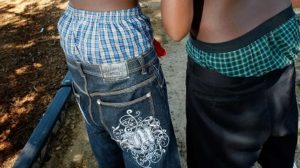
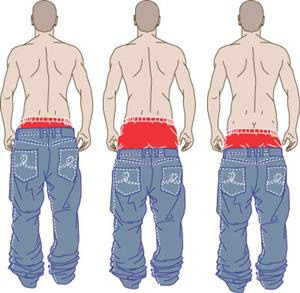
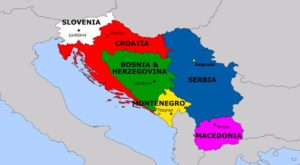 Welcome to Yugoslavia … one of the most classic Toxic Environments in the history of civilization.
Welcome to Yugoslavia … one of the most classic Toxic Environments in the history of civilization.
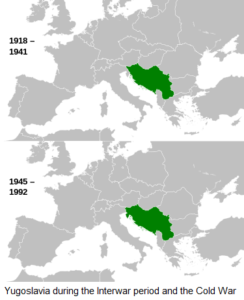 Yugoslavia
Yugoslavia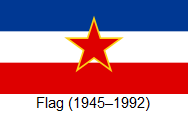 The six constituent republics that made up the
The six constituent republics that made up the  Multilateral military alliances abounded in that day among the Great Powers: Austria-Hungary with Germany (Triple Alliance of 1882) and Serbia with Russia and France (Triple Entente of 1907) and Britain. When war ensued later in August 1914, these were the sides. Many other military treaties were triggered thereby engaging empires/countries like Ottoman-Turks, Portugal, Japan and Italy, (The United States joined in 1917 allied with Britain). The resulting conflict was dubbed the Great War until subsequently rebranded World War I.
Multilateral military alliances abounded in that day among the Great Powers: Austria-Hungary with Germany (Triple Alliance of 1882) and Serbia with Russia and France (Triple Entente of 1907) and Britain. When war ensued later in August 1914, these were the sides. Many other military treaties were triggered thereby engaging empires/countries like Ottoman-Turks, Portugal, Japan and Italy, (The United States joined in 1917 allied with Britain). The resulting conflict was dubbed the Great War until subsequently rebranded World War I.
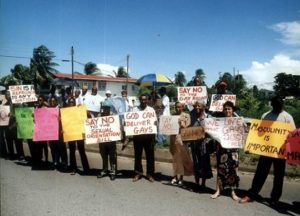
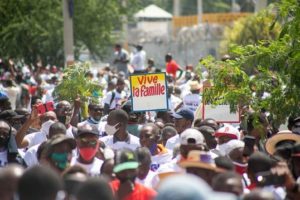
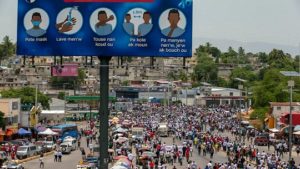
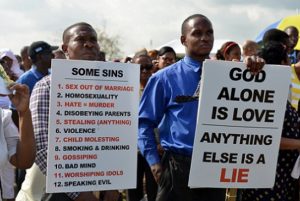
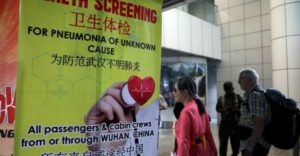
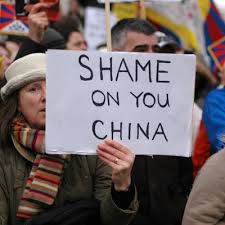
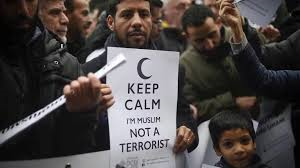 The actuality of Intolerance is the opposite of the qualities a pluralistic society like the Caribbean needs to develop. We have a new found economic engine that we can now exploit:
The actuality of Intolerance is the opposite of the qualities a pluralistic society like the Caribbean needs to develop. We have a new found economic engine that we can now exploit: 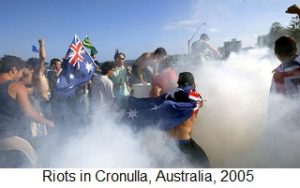

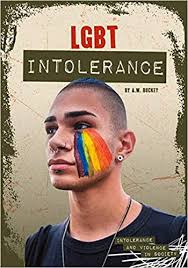

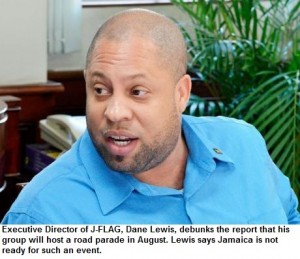



 24 “Anyone who listens to my teaching and follows it is wise, like a person who builds a house on solid rock. 25 Though the rain comes in torrents and the floodwaters rise and the winds beat against that house, it won’t collapse because it is built on bedrock. 26 But anyone who hears my teaching and doesn’t obey it is foolish, like a person who builds a house on sand. 27 When the rains and floods come and the winds beat against that house, it will collapse with a mighty crash.” – The Bible re: Building on a Solid Foundation – Matthew 7:24-27 –
24 “Anyone who listens to my teaching and follows it is wise, like a person who builds a house on solid rock. 25 Though the rain comes in torrents and the floodwaters rise and the winds beat against that house, it won’t collapse because it is built on bedrock. 26 But anyone who hears my teaching and doesn’t obey it is foolish, like a person who builds a house on sand. 27 When the rains and floods come and the winds beat against that house, it will collapse with a mighty crash.” – The Bible re: Building on a Solid Foundation – Matthew 7:24-27 – 
 When the
When the  The
The  [Thoughts-feeling-speech-action] is usually the order and process for change. Change doesn’t just start with Action; a lot more goes into it. It can be likened to a factory process; there is input and there is output. While Action is the output, “Thoughts, Feelings and Speech” qualify as input.
[Thoughts-feeling-speech-action] is usually the order and process for change. Change doesn’t just start with Action; a lot more goes into it. It can be likened to a factory process; there is input and there is output. While Action is the output, “Thoughts, Feelings and Speech” qualify as input. The Washington Football Team are a professional
The Washington Football Team are a professional 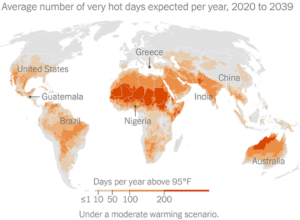 This is not true for Climate Change. Some communities are on the frontlines; some communities take all the beatings, while some other communities are unscathed.
This is not true for Climate Change. Some communities are on the frontlines; some communities take all the beatings, while some other communities are unscathed.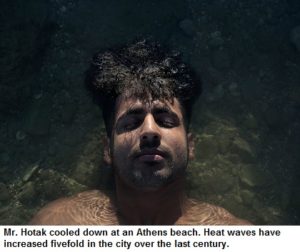 … Mr. Hotak was 16 when he left his home in the Sholgara district of Afghanistan, the only one among his 11 brothers and sisters to do so. After one failed attempt to enter Europe and two years in a refugee camp, he was granted asylum in Greece. That’s when he arrived on the rooftop refuge with a friend, in the crowded warrens of Kolonos, a working class Athens neighborhood where many migrants have settled.
… Mr. Hotak was 16 when he left his home in the Sholgara district of Afghanistan, the only one among his 11 brothers and sisters to do so. After one failed attempt to enter Europe and two years in a refugee camp, he was granted asylum in Greece. That’s when he arrived on the rooftop refuge with a friend, in the crowded warrens of Kolonos, a working class Athens neighborhood where many migrants have settled.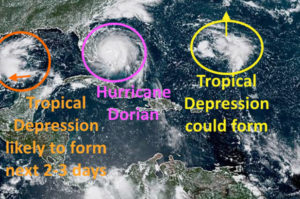 Hurricanes are worse; more frequent and more powerful. In fact for 2020, the meteorological officials have ran out of names to assign for this year’s Atlantic Hurricane season. They are now assigning the Greek alphabet as hurricane names; think Alpha, Beta, Gamma, Delta, Epsilon, etc.. Here is the actuality of the Alpha Storm here:
Hurricanes are worse; more frequent and more powerful. In fact for 2020, the meteorological officials have ran out of names to assign for this year’s Atlantic Hurricane season. They are now assigning the Greek alphabet as hurricane names; think Alpha, Beta, Gamma, Delta, Epsilon, etc.. Here is the actuality of the Alpha Storm here: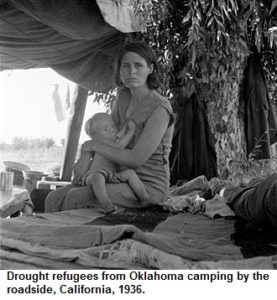 Well, the opposite is occurring; there are shortages – like precipitation, cool breezes, shady trees – and dire consequences (
Well, the opposite is occurring; there are shortages – like precipitation, cool breezes, shady trees – and dire consequences (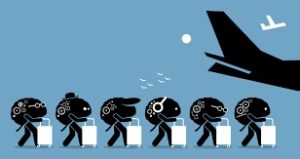 So first there was the brain drain (
So first there was the brain drain ( Our choices are that simple: prepare for Climate Change or watch our people migrate away from the homeland to foreign shores where the dire effects are lessened. While all humans are created equal, all people do not get equal treatment from … Mother Nature. Some people get more hot and wet than other people, yet they may not be able to afford the physical relief.
Our choices are that simple: prepare for Climate Change or watch our people migrate away from the homeland to foreign shores where the dire effects are lessened. While all humans are created equal, all people do not get equal treatment from … Mother Nature. Some people get more hot and wet than other people, yet they may not be able to afford the physical relief. For the Caribbean, there has been little for us to smile about. Unless, we look at the Wide World of Sports. Here is this example in this summary of a big Sports News story:
For the Caribbean, there has been little for us to smile about. Unless, we look at the Wide World of Sports. Here is this example in this summary of a big Sports News story:
 Meld Caribbean distinctiveness with that of other cultures.
Meld Caribbean distinctiveness with that of other cultures.

 Yet rather than cheer Osaka, the crowd, the commentators and US Open officials all expressed shock and grief that Serena Williams lost.
Yet rather than cheer Osaka, the crowd, the commentators and US Open officials all expressed shock and grief that Serena Williams lost.
 This is the issue again now. The Conservatives have downplayed the seriousness of the Coronavirus; first labeling it a hoax, then assigning it as “just the common flu”, and now conspiring that less people have actually died compared to the official scientific tally. (The Liberals only want to count the dead).
This is the issue again now. The Conservatives have downplayed the seriousness of the Coronavirus; first labeling it a hoax, then assigning it as “just the common flu”, and now conspiring that less people have actually died compared to the official scientific tally. (The Liberals only want to count the dead).
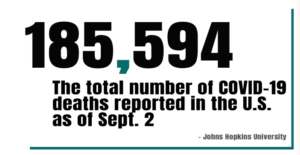
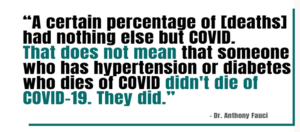 A closer look at the CDC data, meanwhile, reveals that many of the comorbidities listed by medical providers are complications caused by COVID-19 rather than chronic conditions that predated infection: heart failure, renal failure, respiratory failure, sepsis and so on.
A closer look at the CDC data, meanwhile, reveals that many of the comorbidities listed by medical providers are complications caused by COVID-19 rather than chronic conditions that predated infection: heart failure, renal failure, respiratory failure, sepsis and so on. There is this great Summer Festival in this small town in the US State of South Dakota, the Sturgis Bike Rally. This event is so impressive that the Caribbean has long been urged to look, listen and learn from this event model. In fact, the 2013 book Go Lean…Caribbean – introducing the Caribbean Union Trade Federation (CU) – dedicates one Appendix (Page 288) to Sturgis.
There is this great Summer Festival in this small town in the US State of South Dakota, the Sturgis Bike Rally. This event is so impressive that the Caribbean has long been urged to look, listen and learn from this event model. In fact, the 2013 book Go Lean…Caribbean – introducing the Caribbean Union Trade Federation (CU) – dedicates one Appendix (Page 288) to Sturgis. The COVID-19 pandemic is threatening many of our most cherished freedoms. We are told by the government not to travel. We are told we can’t gather for religious services. We are told we must wear masks, but we must not go to restaurants or stores. Our favorite sporting events, school activities and even graduations are cancelled. In some places, we are told we may not gather even for the most important things in life: the birth of a newborn or the passing of a loved one. At rallies protesting the lockdown, participants claim their constitutional rights are being violated and that the “illegal” government orders must be lifted. Who is right: the protestors or the government?Put another way, do the governments’ actions taking away certain rights, even if only temporarily, violate the Constitution? This article seeks to answer that question using a few real-life examples.
The COVID-19 pandemic is threatening many of our most cherished freedoms. We are told by the government not to travel. We are told we can’t gather for religious services. We are told we must wear masks, but we must not go to restaurants or stores. Our favorite sporting events, school activities and even graduations are cancelled. In some places, we are told we may not gather even for the most important things in life: the birth of a newborn or the passing of a loved one. At rallies protesting the lockdown, participants claim their constitutional rights are being violated and that the “illegal” government orders must be lifted. Who is right: the protestors or the government?Put another way, do the governments’ actions taking away certain rights, even if only temporarily, violate the Constitution? This article seeks to answer that question using a few real-life examples. —–
—– Sturgis is a city in Meade County, South Dakota, United States. The population was 6,627 as of the 2010 census. It is the county seat of Meade County and is named after General Samuel D. Sturgis. Sturgis is famous for being the location of one of the largest annual motorcycle events in the world, which [started in 1938 and] is held annually on the first full week of August. Motorcycle enthusiasts from around the world flock to this usually sleepy town during the Sturgis Motorcycle Rally.
Sturgis is a city in Meade County, South Dakota, United States. The population was 6,627 as of the 2010 census. It is the county seat of Meade County and is named after General Samuel D. Sturgis. Sturgis is famous for being the location of one of the largest annual motorcycle events in the world, which [started in 1938 and] is held annually on the first full week of August. Motorcycle enthusiasts from around the world flock to this usually sleepy town during the Sturgis Motorcycle Rally. Keeping up with the Joneses.
Keeping up with the Joneses. New Zealand, a modern small island nation, has become an emblematic champion of proper prevention and response to the
New Zealand, a modern small island nation, has become an emblematic champion of proper prevention and response to the 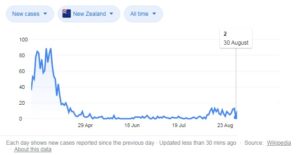 What else went into New Zealand’s pandemic response—and what could serve as guidance for other countries?
What else went into New Zealand’s pandemic response—and what could serve as guidance for other countries?